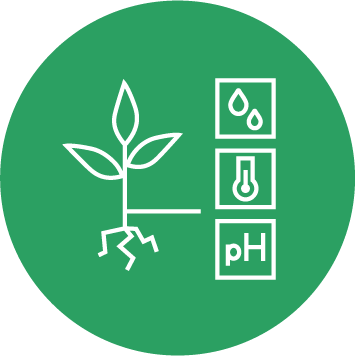PLANT ANALYSIS KIT
Trust Ward Laboratories to provide the data you need to make informed in-season fertility decisions.
Kit Includes:
- 6 weeks of plant analyses for 1 field
- Recommended sampling stages: 3-5 leaf; 6-9 leaf; 10-14 leaf; 15-18 leaf; VT; Brown Silk
- 6 prepaid UPS shipping labels
- 6 Sample bags
- 6 Shipping boxes
- 6 Submittal Sheets
Why test plant tissue?
Ward Laboratories recommends testing for two primary reasons:
- To diagnose visible symptoms of poor plant health
- To monitor the plant’s nutrient content and adjust management techniques accordingly – before visible problems appear
But my plants look great! Why do I need to test?
Here’s a common scenario: your plants seem to be thriving – but your crop yield at harvest just isn’t meeting expectations. Hidden plant hunger is a problem that many producers face. Sometimes your crop can exhibit zero visible symptoms, but still be deficient in key nutrients. Plant analysis can help you avoid potential problems down the road.
What causes hidden hunger in plants?
Excessive or insufficient nutrient levels in plant tissue are typically caused by inadequate fertilizer applications or nutrient imbalances in a soil. We help our growers diagnose these imbalances through plant analysis AND provide sufficiency ratings that help you make informed management decisions.
Ward Laboratories can help you solve the problem.
Get started with our most popular plant analysis option:

Routine Plant Tissue Testing
(Analysis Only, No Kit)
$27.50 USD
This is a great entry point for plant testing! Follow our directions to submit a sample for your individual crop. We’ll test your sample for nitrogen, phosphorus, potassium, calcium, magnesium, sulfur, zinc, iron, manganese, copper, boron and molybdenum. You’ll receive a complete report of your results, allowing you to adjust management techniques accordingly.

